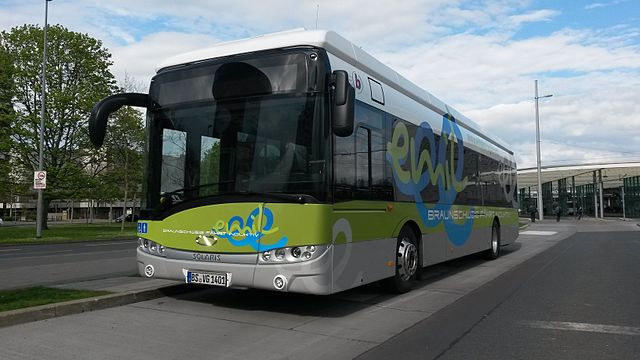A battery electric bus is an electric bus that is driven by an electric motor and obtains energy from on-board batteries. Many trolleybuses use batteries as an auxiliary or emergency power source.
Solaris Urbino 12 electric from Braunschweiger Verkehrs-GmbH (Germany) at an inductive charging station at the front of Braunschweig Hauptbahnhof
Battery bus, 1899
Bus charging from an overhead charger
An Arriva Shires & Essex Wright StreetLite EV bus whilst using induction to recharge its batteries at a bus stop.
An electric bus is a bus that is propelled using electric motors, as opposed to a conventional internal combustion engine. Electric buses can store the needed electrical energy on board, or be fed mains electricity continuously from an external source such as overhead lines. The majority of buses using on-board energy storage are battery electric buses, where the electric motor obtains energy from an onboard battery pack, although examples of other storage modes do exist, such as the gyrobus that uses flywheel energy storage. When electricity is not stored on board, it is supplied by contact with outside power supplies, for example, via a current collector, or with a ground-level power supply, or through inductive charging.
Electric buses in Bogotá, the city with the most electric buses outside of China
A Massachusetts Bay Transportation Authority Neoplan USA trolleybus in Greater Boston
A battery electric Proterra BE35 bus operated by San Joaquin RTD beside its fixed charging station
A battery electric in Hong Kong








